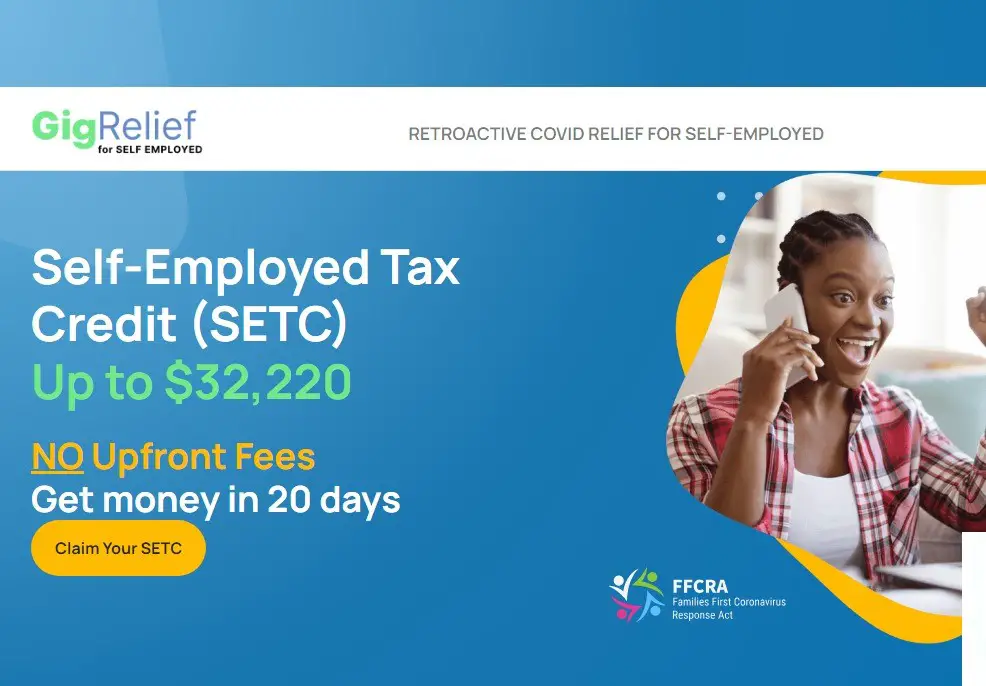Have you come across GetGigRefund.com? This website claims that you are eligible for retroactive Covid relief funds under the Self-Employed Tax Credit (SETC) for up to $32,000, it’s a scam. The real IRS has nothing to do with this, here is how we investigated.

Is This IRS Letter About Covid Relief for Self-Employed People Legit?
The letter from GetGigRefund.com claims the IRS is allowing self-employed people to claim sick and family care days to help cover losses from Covid lockdowns and quarantines. It also includes my loan number, lender name, and the PPP loan amount I received. Is this legitimate?
Problems with GetGigRefund.com
- Private Company: The site ends in “.com,” so it’s run by a private business, not a government service.
- New and Unproven: It started in June 2024, so it doesn’t have a history of being reliable.
- Asks for Sensitive Info: It requests personal details like your Social Security Number (SSN), which is a red flag.
- Doubtful Claims: It says it has helped thousands of businesses quickly, which seems unlikely for a new site.
- Middleman: The site doesn’t provide loans itself but connects you with other lenders, which might mean they’re selling your personal information.
IRS Warns About Fake “Self Employment Tax Credit”
The IRS is warning people about false information going around on social media about a fake “Self Employment Tax Credit.” This bad advice is making some people file for a credit that doesn’t actually exist. Be careful and don’t get tricked by these claims.
Truth About the Sick and Family Leave Credit
The sick and family leave credit was available only to self-employed individuals in 2020 and 2021 due to COVID-19. It is not available for 2023. Using Form 7202 incorrectly to claim this credit can cause issues since it is intended for self-employed income only. To avoid mistakes and potential problems with your taxes, consult a qualified tax professional.
How to Avoid Tax Scams
- Double-Check Claims: Always verify tax offers with the IRS or a trusted tax expert. Don’t trust random emails or messages.
- Report Scams: If you get suspicious messages, report them to the IRS or FTC to help stop the scam.
- Stay Updated: Keep informed about the latest scam warnings to avoid falling for new tricks.
Also read: Don’t Fall for the Fake Y&L Consulting Job Offer Scam
